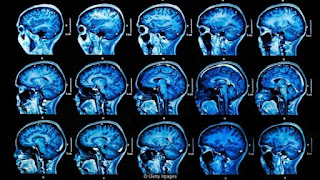Symptoms of Migraine
Migraines often begin in childhood, adolescence or early
adulthood. Migraines may progress through four stages: prodrome, aura, headache
and post-drome, though you may not experience all stages.
Prodrome
One or two days before a migraine, you may notice subtle
changes that warn of an upcoming migraine, including:
- Constipation
- Mood changes, from depression to euphoria
- Food cravings
- Neck stiffness
- Increased thirst and urination
- Frequent yawning
Aura may occur before or during migraines. Most people
experience migraines without aura. Auras are symptoms of the nervous system. They are usually
visual disturbances, such as flashes of light or wavy, zigzag vision.
Sometimes auras can also be touching sensations (sensory),
movement (motor) or speech (verbal) disturbances. Your muscles may get weak, or
you may feel as though someone is touching you.
Each of these symptoms usually begins gradually, builds up
over several minutes and lasts for 20 to 60 minutes. Examples of migraine aura
include:
- Visual phenomena, such as seeing various shapes, bright spots or flashes of light
- Vision loss
- Pins and needles sensations in an arm or leg
- Weakness or numbness in the face or one side of the body
- Difficulty speaking
- Hearing noises or music
- Uncontrollable jerking or other movements
- Sometimes, a migraine with aura may be associated with limb weakness (hemiplegic migraine).
A migraine usually lasts from four to 72 hours if untreated.
The frequency with which headaches occur varies from person to person.
Migraines may be rare, or strike several times a month. During a migraine, you
may experience:
- Pain on one side or both sides of your head
- Pain that feels throbbing or pulsing
- Sensitivity to light, sounds, and sometimes smells and touch
- Nausea and vomiting
- Blurred vision
- Light-headedness, sometimes followed by fainting
Post-drome
The final phase, known as post-drome, occurs after a
migraine attack. You may feel drained and washed out, while some people feel
elated. For about 24 hours, you may also experience:
- Confusion
- Moodiness
- Dizziness
- Weakness
- Sensitivity to light and sound
Are you a doing research for #Migraine, then International #Conference on #Alzheimers, Dementia and Related #Neurodegenerative Diseases will be a great platform for you to present your work.. Join us at the beautiful city of Madrid on August 27-28, 2018. Submit your abstracts via: https://bit.ly/2HlLuhx




Comments
Post a Comment